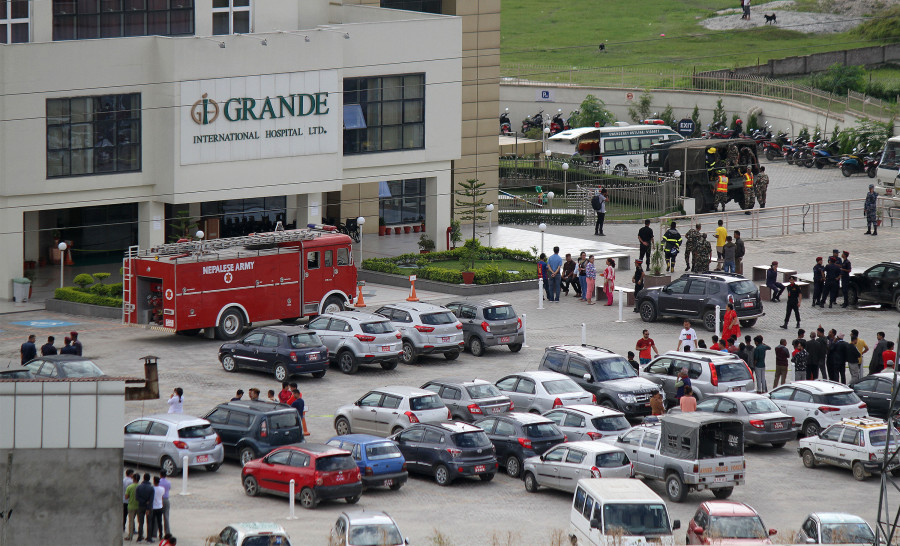Editorial
Grande’s refusal to admit any responsibility shows insensitivity
Nepal Medical Council would do well to remember that its own investigation panel has found mistakes and instances of negligence in this case.
The ethical committee of the Nepal Medical Council on October 1 directed Grande International Hospital to explain why it shouldn’t face action over a case of medical negligence. The disheartening incident surrounds a 15-month-old child who had to go through multiple procedures and treatments at Grande. The council has found many mistakes on the hospital’s part during its investigation. But what is astonishing is that it has taken this long—over 400 days since the patient’s birth—for the medical council to reach this stage of examination. In Nepal, even the worst cases—as this one can be considered, given the child’s age—take so long to be resolved; that is, if they ever do reach a conclusion.
The case of Rihan Neupane is a sad one. Born on June 26, 2018 by caesarian section, the doctors found that the baby had caught pneumonia due to a hospital-borne infection. While the parents initially accepted the hospital personnel’s suggestions on how to treat their son, they started to have serious doubts when complications led to even more complications over time. After being put through five surgeries in over eight months, the parents could not trust the hospital staff any longer. When they demanded that the hospital management be held accountable for their negligence, the hospital refused to acknowledge any wrongdoing. Sanjeev Neupane, the infant’s father, subsequently filed a complaint with the Nepal Medical Council and posted about his problems on social media. It was only after venting his feelings online did the story receive coverage, and the council began its investigations.
The council in its findings has already shown how the infant was poisoned by high doses of paracetamol, how there were instances of miscommunication between doctors and radiologists (leading to an incorrect diagnosis), and how the family were not kept well-informed about the procedures. And yet, Dr Chakra Raj Pandey, director at Grande, has been denying all allegations—saying that his hospital will furnish its defence. Now, Dr Pandey is free to defend his hospital, despite the council’s findings. But given the circumstance and the evidence, the hospital could have been more vigilant and careful in its work—not to mention more respectful towards the family that went through such a traumatic experience.
Medical negligence occurs even in the best of circumstances, in the most developed countries in the world. In 2016, a study conducted at Johns Hopkins University found, analysing data from eight consecutive years, that medical errors were the third largest cause of death in the US. Given this fact, and the current situation, it would have been more prudent of the hospital to support the family and help it navigate the situation better, pending the investigation. Only two years ago, doctors had to go on strike to protest violent attacks on medical professionals, and the government’s implementing unnecessarily strict malpractice and negligence laws. While the attacks by the patients and their kin, and the government's reaction, were deemed too extreme, it came from a perceived lack of accountability in the medical profession over serious medical errors.
The refusal to admit any responsibility, in this case, shows insensitivity on Grande’s part. Moreover, with the hospital refusing to be accountable, the medical council will have to meet in full membership to vote on any actions or punishments. Given that this requires a two-thirds majority, and the potential lobbying power that private medical operators have, this case could still end unsatisfactorily. But the Nepal Medical Council would do well to remember that its own investigation panel has found mistakes and instances of negligence in this case.




 9.12°C Kathmandu
9.12°C Kathmandu













